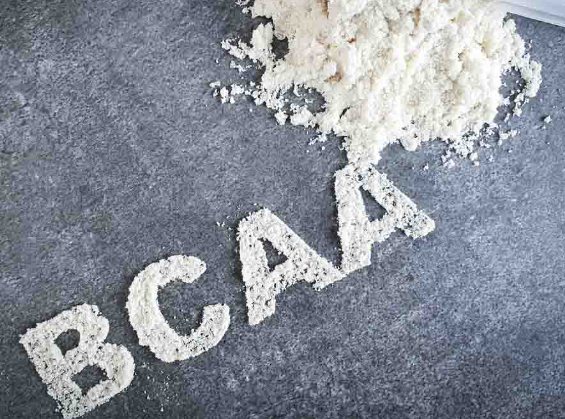How much bcaa per day
Introduction:
BCAAs (branched-chain amino acids) have gained popularity in the fitness and health community due to their potential benefits for muscle growth, exercise performance, and overall well-being.
However, it's essential to understand the recommended daily dosage, safety considerations, and timing for optimal results. In this article, we will explore the appropriate BCAA dosage for different purposes, potential risks of excessive intake, and the best practices for consuming BCAAs.

How much BCAA per day is safe?
The safety of BCAA consumption depends on factors such as individual needs, health status, and existing medical conditions. For most healthy adults, a daily BCAA intake of 5-20 grams is considered safe. The upper limit of this range is based on studies showing significant benefits without adverse effects. However, it's important to start with a lower dosage and gradually increase it to assess individual tolerance.
How much BCAA per day is too much?
Excessive BCAA powder intake can lead to certain risks. Very high doses (over 20 grams per day) may result in gastrointestinal distress, including nausea, diarrhea, and bloating. Prolonged and excessive BCAA supplementation may also put strain on the liver and kidneys. Additionally, excessive BCAA intake can disrupt the balance of other amino acids in the body. It's crucial to stay within the recommended dosage range and consult with a healthcare professional for personalized advice.

How much BCAA per day for bodybuilding?
Bcaa wholesale are often popular among bodybuilders due to their potential benefits for muscle growth and recovery. For bodybuilding purposes, a recommended dosage of 5-10 grams of bulk BCAA powder before and after workouts is commonly suggested.
This dosage can help promote muscle protein synthesis, reduce muscle breakdown, and enhance workout performance. However, individual needs may vary, and it's important to consider overall protein intake from various sources in conjunction with BCAA supplementation.
How much BCAA per day for weight loss?
BCAAs may play a role in weight loss by reducing muscle breakdown during caloric deficits and improving exercise performance. To support weight loss goals, a daily dosage of 5-10 grams of BCAAs is often recommended. Consuming BCAAs before or during workouts can help preserve lean muscle mass, enhance fat burning, and minimize fatigue.
However, it's crucial to combine BCAA supplementation with a balanced diet, regular exercise, and a calorie-controlled approach for sustainable weight loss.
Best time to take BCAA for weight loss:
To maximize the benefits of BCAAs for weight loss, timing is important. Consuming BCAAs before or during workouts can provide an energy boost, reduce muscle breakdown, and support fat burning. Taking BCAAs between meals or during periods of fasting can also help prevent muscle loss and curb appetite. However, individual preferences may vary, and it's advisable to experiment with different timings to find what works best for you.

How much BCAA per day for athletes?
Athletes undergoing intense training may have increased BCAA requirements. The recommended dosage for athletes ranges from 10-20 grams of bulk bcaa per day, depending on factors such as training volume, intensity, and individual goals.
Dividing this dosage into pre- and post-workout servings can help optimize muscle protein synthesis, reduce fatigue, and enhance recovery. Athletes should consider working with a sports nutritionist to tailor their BCAA intake to their specific needs.
How much BCAA in eggs?
Eggs are a natural source of bulk bcaa powder. A large egg contains roughly 0.6-0.8 grams of BCAAs, with leucine being the most abundant. While eggs provide BCAAs, the concentration is relatively low compared to BCAA supplements. It's important to note that the overall protein content of the egg contributes more significantly to meeting your daily BCAA needs.
Should I take BCAA on rest days?
While BCAAs are often associated with exercise performance and recovery, they can still be beneficial on rest days. Taking a lower dosage (around 5 grams) of BCAAs on rest days can help preserve muscle mass, support protein synthesis, and aid in overall recovery. However, the necessity of BCAA supplementation on rest days may vary based on individual goals and dietary protein intake.
Is 10g of BCAA too much?
A daily dosage of 10 grams of BCAAs is generally safe for most individuals. This amount falls within the recommended range and can provide benefits for muscle growth, exercise performance, and recovery. However, it's crucial to assess personal tolerance and consider other dietary protein sources to meet overall amino acids wholesale needs.

10.Is it OK to take BCAA 2 times a day?
Taking BCAAs twice a day can be beneficial for individuals seeking sustained muscle protein synthesis and recovery support. Dividing the recommended daily dosage into two equal servings (e.g., morning and evening) can help maintain a continuous supply of BCAAs throughout the day. This practice may be particularly useful for athletes and those engaged in intense exercise routines.
11.Can you take too many BCAAs in a day?
Excessive BCAA intake can have potential risks, as discussed earlier. It's important to stay within the recommended dosage range and avoid consuming extremely high amounts of bulk bcaa. Adhering to the appropriate daily dosage and considering overall protein intake from various dietary sources is the best approach to ensure safety and effectiveness.
12.How many scoops of BCAA can you have a day?
The number of scoops required to reach the desired BCAA dosage depends on the concentration of BCAAs in the supplement and individual goals. Typically, one scoop of BCAA powder provides around 5 grams of BCAAs. It's recommended to start with a lower dosage (e.g., one scoop) and adjust as needed based on personal tolerance and advice from a healthcare professional or sports nutritionist.
Conclusion:BCAAs are a valuable supplement for supporting muscle growth, exercise performance, and overall well-being. Understanding the appropriate dosage, safety considerations, and best practices is essential for maximizing their benefits.
The recommended daily dosage of BCAAs ranges from 5-20 grams, depending on specific goals and circumstances. It's important to respect these guidelines, monitor individual tolerance, and consult with professionals when needed to optimize the use of bulk bcaa as part of a well-rounded fitness and nutrition strategy.
FAQs
Is it safe to consume BCAAs daily?
Yes, BCAAs are safe when taken within the recommended dosage range of 5 to 20 grams per day for adults.
Can BCAAs help with weight loss?
Yes, BCAAs can aid in weight loss by preserving lean muscle mass and supporting fat burning during calorie-restricted diets or fasting.
Are BCAAs beneficial for athletes?
Absolutely! BCAAs can improve endurance, reduce muscle fatigue, and enhance recovery, making them valuable for athletes.
Can I take BCAAs on non-training days?
Yes, taking bulk bcaa powder on rest days can still support muscle recovery and overall performance, especially for individuals with intense training schedules.
What happens if I consume too many BCAAs?
Consuming excessive BCAAs, typically above 20 grams per day, may lead to digestive discomfort and imbalances in amino acid levels. Stick to recommended dosages for optimal results.
References:
Blomstrand E., et al. (2006). Branched-chain amino acids activate key enzymes in protein synthesis after physical exercise. The Journal of Nutrition, 136(1), 269S-273S.
Howatson G., et al. (2012). Exercise-induced muscle damage is reduced in resistance-trained males by branched-chain amino acids: A randomized, double-blind, placebo-controlled study. Journal of the International Society of Sports Nutrition, 9(1), 20.
Negro M., et al. (2008). Branched-chain amino acid supplementation does not enhance athletic performance but affects muscle recovery and the immune system. The Journal of Sports Medicine and Physical Fitness, 48(3), 347-351.
Shimomura Y., et al. (2006). Nutraceutical effects of branched-chain amino acids on skeletal muscle. The Journal of Nutrition, 136(2), 529S-532S.
Stoppani J., et al. (2009). Consuming branched-chain amino acid supplement during a resistance training program increases lean mass, muscle strength and fat loss. Journal of the International Society of Sports Nutrition, 6(Suppl 1), P1.
About Author

Celine Xu is a botanist with over 15 years of experience researching and developing plant extracts for nutritional and pharmaceutical applications. She leads an R&D team focused on identification, cultivation and extraction of medicinal plants. Celine Xu earned a Ph.D. in Plant Biology has authored numerous articles in peer-reviewed journals about the health benefits of specific phytochemicals. She frequently speaks at industry conferences about new developments in plant extract research. Celine Xu is dedicated to advancing the scientific understanding of how targeted plant compounds can be used to improve human health.
Related Industry Knowledge
- What is Orange Juice Powder?
- What is the use of Macleaya cordata?
- Can I Add Wheat Protein Powder to Babies Food
- Is hydrolyzed wheat protein the same as MSG?
- Does Stevia Taste Like Sugar
- Is Passion Flower Extract Safe During Pregnancy
- Is hydrolyzed wheat protein good for skin?
- Grape Seed Extract vs Resveratrol
- Exploring the Wonders of Alfalfa Extract Powder: A Comprehensive Overview
- Embracing the Emotional Journey with Pumpkin Seed Extract Powder







